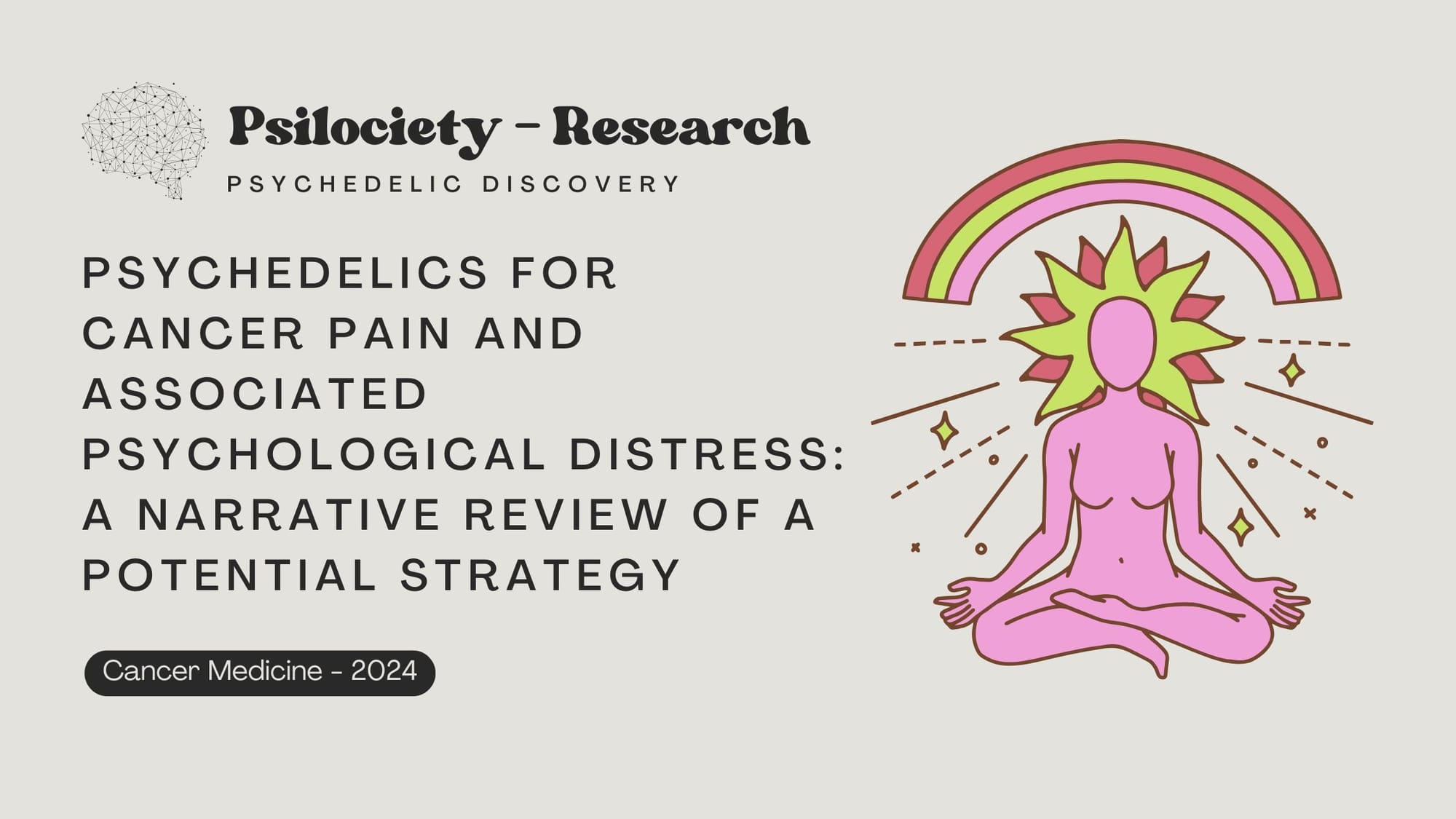Psychedelics for Cancer Pain and Associated Psychological Distress: A Narrative Review of a Potential Strategy
A review of psychedelics for cancer pain and distress, highlighting their potential role in reducing pain perception and improving mood.

Title & Introduction
- Paper Title: Psychedelics for Cancer Pain and Associated Psychological Distress: A Narrative Review of a Potential Strategy
- Published In: Cancer Medicine
- Publish date: 20 December, 2024
- Authors: Erika Belitzky, Lis Victoria Ravani Carvalho, Melissa Taylor, Cristina Naranjo Ortiz, Laura Baum, David A. Fiellin, Maryam B. Lustberg
- Objective: To evaluate current evidence on the potential use of psychedelics for managing cancer pain and psychological distress.
- Importance: Cancer-related pain and psychological distress remain significant challenges in oncology, with current treatments often proving insufficient. Psychedelics, such as LSD and psilocybin, have shown promise in addressing both pain and distress, necessitating further research.
Summary & Takeaways
Key Takeaway: Psychedelics, particularly psilocybin and LSD, show potential for alleviating cancer-related pain and psychological distress. Early research indicates that they may reduce pain perception and improve mood, but more studies are needed to confirm efficacy and safety.
Practical Application: The study suggests that psychedelic-assisted therapy could provide an alternative or adjunct to opioids in cancer pain management, particularly for patients experiencing distress related to their diagnosis.
Key Background Information
- Context: Cancer pain is often undertreated, partly due to the opioid crisis and the complexity of pain mechanisms. Psychedelics have been explored as potential analgesics and antidepressants in chronic conditions but remain under-researched in cancer pain.
- Hypothesis: Psychedelics may modulate pain perception and alleviate psychological distress through serotonergic pathways and neuroplasticity effects.
Methodology
- Study Design: Narrative review of existing literature and clinical trials.
- Participants: Studies included patients with cancer experiencing pain and psychological distress.
- Intervention/Exposure: Review of psychedelics such as psilocybin, LSD, mescaline, and DMT in the context of pain and distress.
- Controls: Not applicable, as this was a review article.
- Duration: Studies reviewed ranged from historical trials in the 1960s to ongoing clinical research.
Key Findings
Primary Outcomes:
- Psychedelics appear to reduce anxiety and depression in cancer patients.
- Some evidence suggests they may modulate pain perception through serotonergic mechanisms.
- Cancer-related distress, including fear of death and existential anxiety, showed improvements with psychedelic therapy.
- Psychedelics may provide long-lasting benefits after a single administration.
Secondary Outcomes:
- Current research is primarily focused on psychological benefits rather than direct pain reduction.
- Few studies explicitly investigate psychedelics as analgesics in cancer pain.
- Several clinical trials are currently exploring psychedelic therapy for cancer-related distress and pain.
- Safety concerns include the risk of challenging experiences and potential drug interactions.
Interpretation & Implications
- Conclusion: Psychedelics hold promise for cancer pain management and psychological distress, but more rigorous studies are needed to determine their efficacy and safety.
- Implications: If validated, psychedelics could become part of a multimodal pain management strategy for cancer patients, particularly those with opioid resistance or psychological distress.
- Limitations: Most research focuses on psychological outcomes rather than direct pain relief, and there is a lack of large-scale, randomized controlled trials.
Researchers & Publication
- Researchers: Erika Belitzky, Lis Victoria Ravani Carvalho, Melissa Taylor, Cristina Naranjo Ortiz, Laura Baum, David A. Fiellin, Maryam B. Lustberg
- Publication Name: Cancer Medicine
- Study URL: https://doi.org/10.1002/cam4.70586

